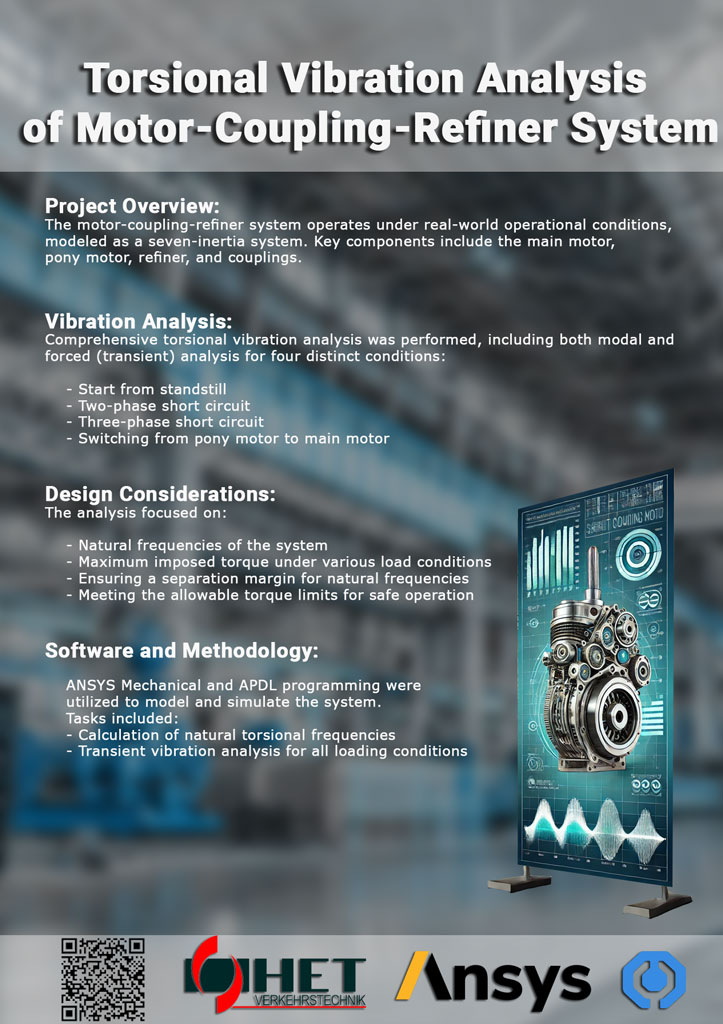
This project focused on performing a detailed torsional vibration analysis for a motor-coupling-refiner system under operational conditions. The system, which plays a crucial role in pulp and paper refining processes, was modeled as a seven-inertia system, encompassing the main motor, pony motor, refiner, and couplings. The goal was to evaluate the system’s behavior under various operational scenarios and ensure it met critical design requirements.
The analysis included both modal and forced (transient) vibration studies across four specific conditions: starting from standstill, two-phase short circuit, three-phase short circuit, and switching from the pony motor to the main motor. These scenarios represent typical and extreme operational conditions that the system may encounter, ensuring robustness and reliability under various stresses.
Key objectives were to calculate the natural torsional frequencies of the system and assess the maximum imposed torque during different load conditions. This information was essential in verifying that the design included adequate separation margins for natural frequencies, preventing resonance, and ensuring that the torque limits were within safe operational thresholds.

To carry out the analysis, ANSYS Mechanical was employed, with the model programmed using the APDL (ANSYS Parametric Design Language). The comprehensive simulation tasks included calculating both the natural frequencies and the forced transient vibrations for the four operating conditions. This approach allowed us to provide in-depth insights into the system’s dynamic behavior, ensuring optimal performance and durability in real-world applications.
By addressing these critical factors, the project aimed to enhance the operational efficiency, safety, and reliability of the motor-coupling-refiner system, contributing to improved productivity in the pulp and paper industry.
This website uses cookies to provide you with the best browsing experience.